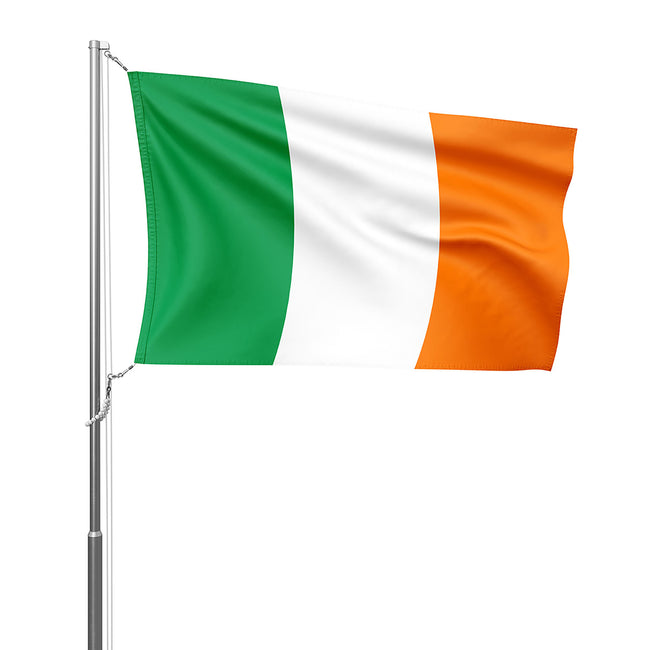At the International Literature Festival Dublin (ILFD), held in Ireland in May, Nigerian-German writer Olumide Popoola and literary agent Bibi Bakare-Yusuf discussed the past, present and future of Nigerian and, more broadly, African writing.
“There’s a renewed energy and excitement, and I want that to continue across the African literary landscape,” says Bakare-Yusuf, founder of Cassava Republic Press.
The publishing house was founded in 2006, with its headquarters in the Nigerian capital of Abuja. Since then it has been at the forefront of promoting Nigerian writing to Nigerian, African and global audiences and now also has offices in the United Kingdom and the United States.
“With the existence of Cassava, we have really shown the world that, in the way that Africans are, we exist in a multitude, and our stories must exist in a multitude as well,” she explains. “It must encompass as much variety as possible; from the village to a slum in Kinshasa or Lagos, to the luxury of Cape Town.”
Abuja: City of Literature
Bakare-Yusuf spoke alongside Nigerian-German writer Olumide Popoola (who is represented by Cassava Republic) at the ILFD event ‘Cities of Literature: Abuja’ on May 22.
Abuja is seeking designation as a UNESCO City of Literature, part of UNESCO’s wider ‘Creative Cities Network’ which was launched in 2004. South Africa is currently the only African country with a designated city, with both Durban and Buffalo City being recognised for their literary wealth.
“Abuja has really grown in terms of its literary offerings,” says Bakare-Yusuf. “There are so many book clubs, a lot of theatres outdoors and indoors, and many bookshops. These are things that make for a great ‘City of Literature’ and I would really welcome Abuja to become the first city in Nigeria to be designated.”
Writer Popoola says she always looks to Nigerian writing for inspiration.
“Nigerian literature is very, very rich,” she says. “I’m obviously very inspired by it and the different ways of storytelling to the Western canon. It’s something that I deeply admire.”
Reshaping narratives
Popoola is one of the writers changing how African literature is seen by international readers.
The author, who grew up between Nigeria and Germany and is now based in London, published her first novel ‘When We Speak of Nothing’ with Cassava Republic in 2017.
Her new book ‘Like Water, Like Sea’ looks at relationships, motherhood and mental health, with a central character who has bipolar disorder.
“I’m slightly on the experimental side, because I want to rethink how we shape narratives and how we tell stories,” says Popoola. “We’re very used to a certain three act structure of linear and narrative arc, and – not that my books don’t have that or that there isn’t a conclusion – but my stories takes you in a slightly round about way.”
She adds that having her books published with Cassava Republic has been very freeing.
“Cassava’s ethos is to have a much richer idea of what African literature should be, and that is really inspiring as a writer and freeing,” she explains.
A growing publishing industry
In the years since Cassava Republic opened, the continent’s publishing industry has grown. So too has the international readership.
“When we started 17 years ago, there was just a handful of writers that we would have heard about internationally,” says Bakare-Yusuf. “I think that when you have a publishing house on the continent that is sharing what’s possible, it inspires other people. At least five other publishers have come on board, which is really exciting and we want more across the continent.”
The publishing house offers a wide range of books for adults, young adults and children, and places emphasis on affordability.
Archives of the future
Beyond the streets of Abuja, the interest in Nigerian and African writing has clearly expanded.
“I think it’s definitely a time for diversity in literature,” says Popoola. “I think there’s so much hunger for different voices that are not just coming from dominant voices or the West that we’ve been used to.”
For Bakare-Yusuf, publishing African voices is not just about the readers of today.
“We need to have a more expansive story about the continent, about our people,” she says. “If we don’t have those stories done now, we’re not going to have anything in the future.”
She terms the concept “the archive of the future”.
“I strongly believe that the future archive that our children’s children are going to open in 500 years’ time, it’s what we’re already creating today,” she says. “I want to be part and parcel of the people creating that.”



